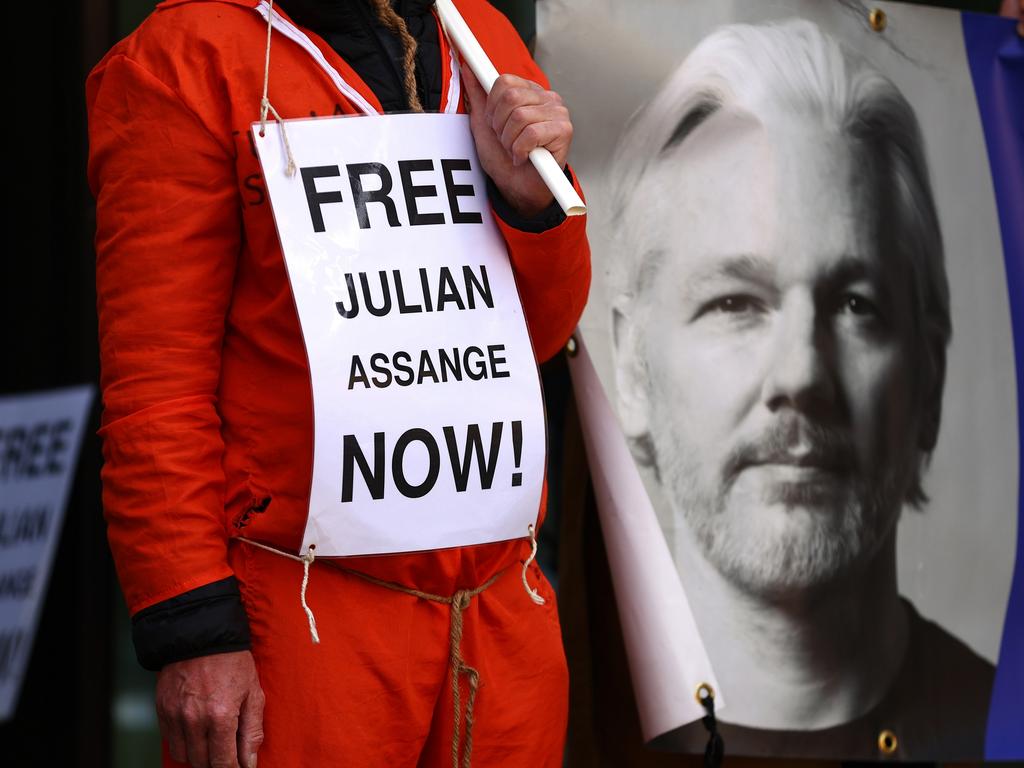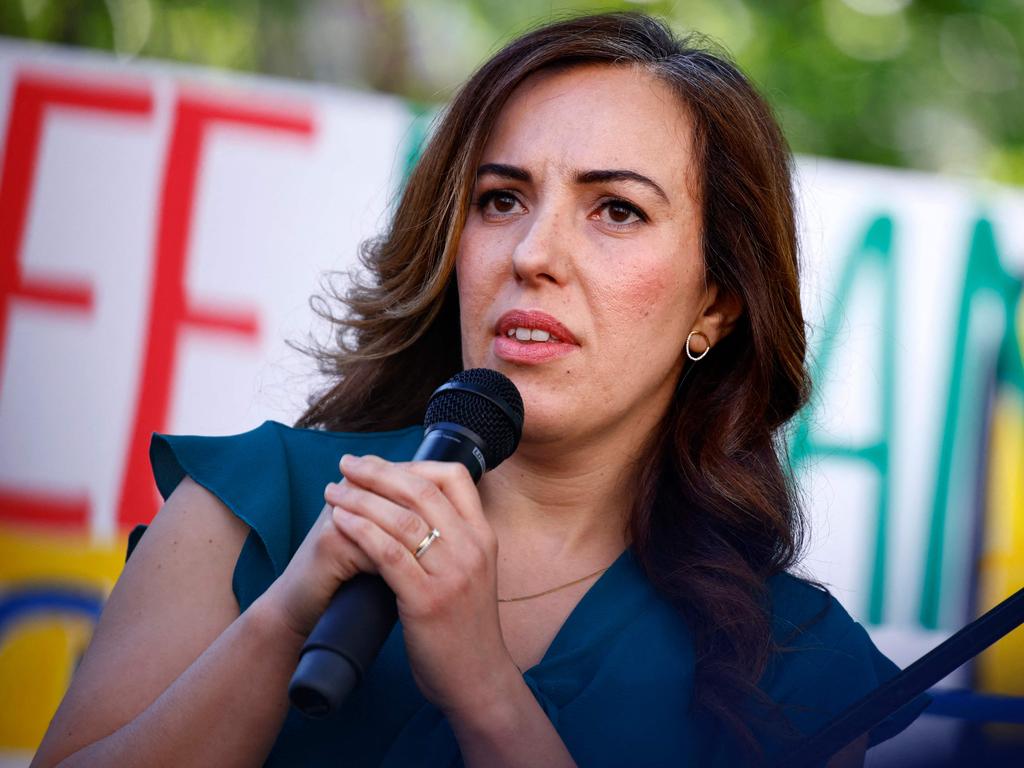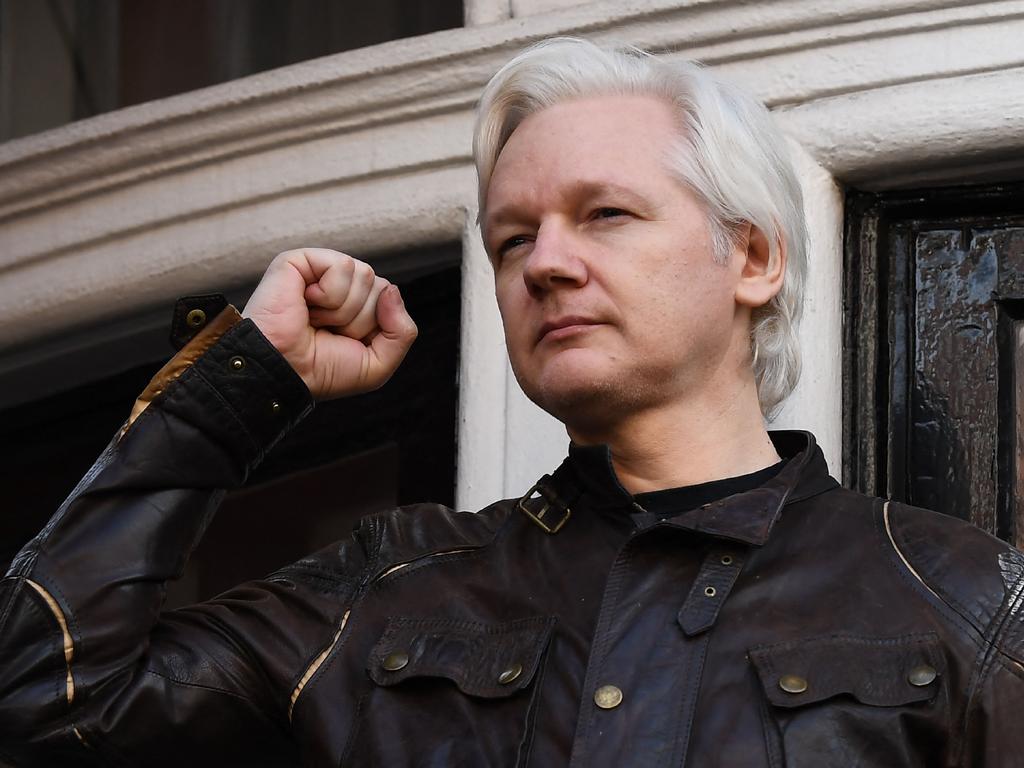
This article is more than
1 year oldJulian Assange has won his bid to appeal his extradition to the United States.
The Australian WikiLeaks founder, 52, was handed the victory by the UK’s High Court on Monday.
The infamous champion for transparency had been given permission to appeal only if the Biden administration was unable to provide the court with suitable assurances “that the applicant [Assange] is permitted to rely on the first amendment, that the applicant is not prejudiced at trial, including sentence, by reason of his nationality, that he is afforded the same first amendment [free speech] protections as a United States citizen, and that the death penalty is not imposed”.
Assange was indicted on 17 espionage charges and one charge of computer misuse related to his website’s publication of a series of classified US documents almost 15 years ago.
He is facing a maximum 175 years in prison.
Last month, President Biden revealed that his administration is “considering” Australia’s request to end the prosecution of Assange.
“We’re considering it,” Biden said in response to a question shouted by a reporter during a meeting with Japanese Prime Minister Fumio Kishida at the White House.

He spent seven years in self-exile in the Ecuadorian Embassy in London and on Thursday marks five years in the high-security Belmarsh Prison on the outskirts of the British capital.
WikiLeaks editor-in-chief Kristinn Hrafnsson called for “a political solution” to the prosecution of Assange, as supporters rallied in London to mark the fifth anniversary of his arrest there.“This is a case that just should never have been started in the first place,” Mr Hrafnsson told AFP at the Wednesday afternoon at a rally in central London.
“The solution to this case where we are dealing with a political persecution is a political solution and a political push,” Hrafnsson said.

Washington has spent several years trying to extradite Assange – who was indicted on 17 charges of espionage and one charge of computer misuse – to face charges over WikiLeaks’ 2010 release of classified military and diplomatic files which related to the US-led wars in Iraq and Afghanistan.
American prosecutors said that he endangered lives.
Attempting to halt the extradition process, Assange has suffered a string of court losses in the long-running legal saga, which his supporters see as a battle for media freedom.
Campaign groups including Amnesty International and Reporters Without Borders have called for his release and denounced the prosecution under the 1917 Espionage Act, which has never been used over the publishing of classified information.
Assange’s life in prison
Last year, Assange’s wife Stella revealed the harsh reality her husband experiences every day, as the threat of a 175-year prison sentence looms.
“He’s gone through two pairs of sneakers, walking the European continent in his cell,” Stella Assange told the National Press Club, claiming when Mr Assange wakes up in his 3x2m prison cell, he turns to the map of Europe on his wall.
She said he has the distances to his favourite cities mapped out, and although he is isolated and confined, he walks the distance to Brussels, Venice and Lisbon around his cell.
“He reads to keep his mind busy, to fight the crushing sense of isolation and of time wasting away.
Speaking of the difficult process she and her children take to visit Julian in prison, Ms Assange remincised on her husband’s time growing up in Australia, including the times he would go surfing at Byron Bay as a teen, or cycling in Melbourne.


“He tells our children how he would catch yabbies and go fishing for flathead and blackfish with his grandfather, or how he hand raised a fledgling rainbow lorikeet when he was 13,” she said.
“That is how I imagine him when he is free. Not behind the cold, blue glare of a computer screen.
“Although it is my first time coming to Australia, I do not feel like a stranger on these shores,” she said.
“I have mixed emotions about being here, because I had always imagined my first visit to be with my husband and children.”
Trump re-election a ‘concern’
Human rights lawyer Jennifer Robinson said the possibility of another Trump administration would be concerning for Mr Assange’s case.
“What will happen, if we see another Trump Administration, is concerning for all of the news media,” Ms Robinson said.
“Given that this is a prosecution that was opened by the Trump administration, we are concerned about press freedom.”
She said Julian’s prosecution would have a continuing impact on Australia’s relationship with the United States.
“It is getting in the way of the US-Australia relationship, which is an important one, but if we can resolve this case, that’s all the better for our relationship.”
Ms Assange said although her husband wakes up on the same flat, concrete floors, this is the closest he has ever been to freedom.
“I place hope in Anthony Albanese’s will to make it happen; I have to,” she said.
“This is the closest we have ever been to securing Julian’s release.
“I want to encourage and do everything in my power to help that happen.”